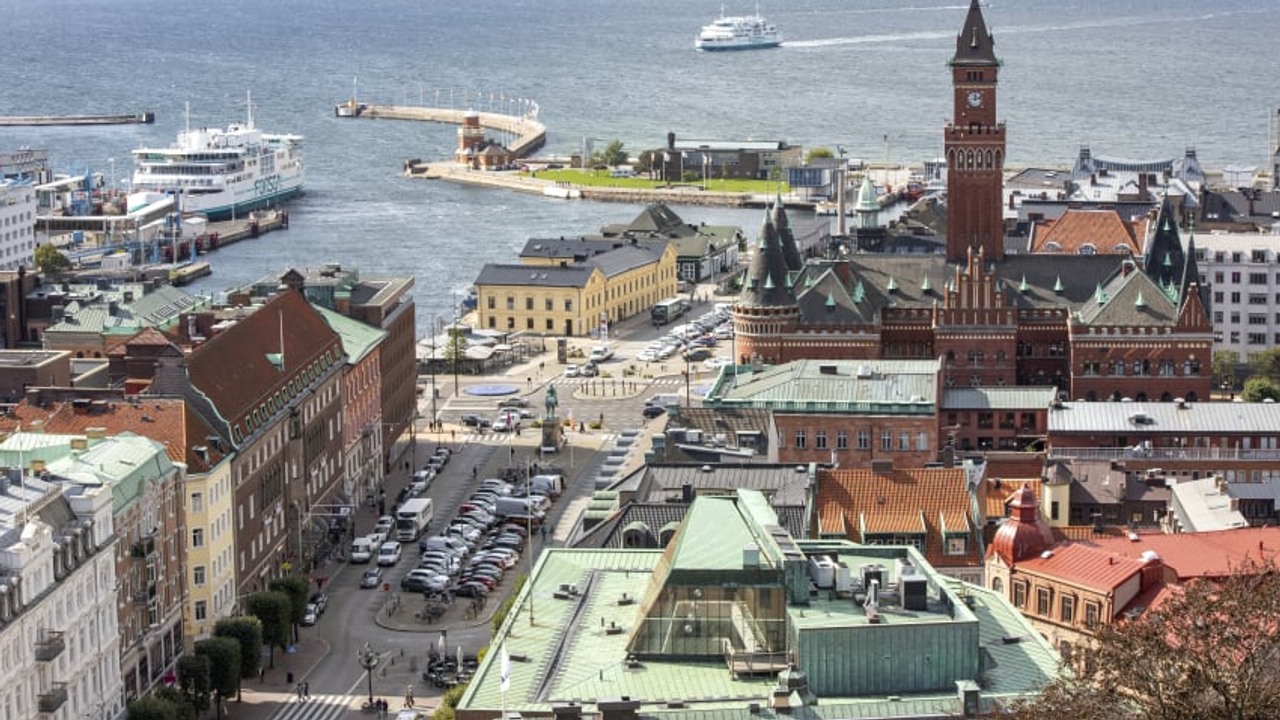
Our phosphorus recovery solution receives multi-million grant
EasyMinings' solution for extracting phosphorus from sewage sludge has been granted 51 MSEK from the Swedish EPA (Environmental Protection Agency), a grant program initiated by the Swedish government to support technology that reduces climate emissions and supports environmental actions. EasyMining, part of the Ragn-Sells Group, plans to build a facility in Helsingborg that can reduce EU's dependency on imported climate-damaging phosphorus from mines.
24 Mar 2021Phosphorus is one of the nutrients in fertilisers and crucial for agriculture to be able to produce enough food to feed the world’s growing population. Today, Europe is dependent on phosphorus from mines outside the EU, where phosphorus is produced through methods that create big climate emissions. At the same time, there is a large amount of phosphorus in the sewage sludge from Sweden's water treatment plants, but the vast majority of this is not used.
The facility Ragn-Sells plans to build in Helsingborg uses EasyMinings´ Ash2Phos technology, which extracts more than 90 percent of the phosphorus from the incinerated sewage sludge ash.
- Sweden's investment in climate-smart technology is important to achieve the goal of zero emissions by 2045. But for it to succeed, it must be profitable to use recycled raw materials instead of newly produced ones. This means new legislation is required, such as ambitious requirements on how much phosphorus that must be recovered from the sewage sludge, says Anna Lundbom, Marketing Manager at EasyMining.
The old rules still apply even though the EU has identified phosphorus as a critical raw material that we cannot do without and that we risk having a shortage of in the future. New legislation with ambitious requirements that phosphorus in sewage sludge must be recycled is long awaited.
- We look forward to working with the government to change the EU regulations and create real recovery loops where quality is more important than origin, says Anna Lundbom.
Ragn-Sells' facility in Helsingborg, Sweden, will have the capacity to treat 56,000 tonnes of ash from incinerated sludge each year, which corresponds to half of the sewage sludge currently not utilized in Sweden.
Facts: Phosphorus
The element phosphorus, with the chemical name P, is included in mineral fertilisers and is necessary for agricultural food production. Both Sweden and the EU are dependent on imports, mainly from Morocco (Western Sahara), China and Russia. Phosphorus today comes from phosphate ore that is mined.
The ore often contains impurities such as the toxic heavy metal cadmium. The cadmium accompanies the fertiliser and is absorbed by plants and finally ends up on our plates. According to the Swedish Chemicals Agency, every seventh bone fracture that Swedish women encounter today is caused by cadmium.
A government inquiry presented in 2020 proposes a legal requirement that at least 60 percent of the phosphorus contained in sewage sludge in Sweden must be recycled. This means a great need for new solutions for recycling. Several other countries in Europe have already legislated on similar requirements.
In the Swedish Environmental Goals Committee's sub-report Havet och människan, which was presented in January 2021, the Committee proposes that Sweden within the EU, should push for a so-called quota obligation, i.e. that a certain proportion of nutrients in mineral fertilisers must be recycled raw material.
Facts: Swedish EPA grant program
The Swedish EPA (Environmental Protection Agency) provides a grant program to support environmental actions. The program is called Klimatklivet and is funded by the Swedish government and focuses on supporting local investments with the greatest possible climate benefits. The total allocation for Klimatklivet 2021 is approximately 2.3 billion SEK.
(The article is a revised version of Ragn-Sells press release Phosphorus recovery solution receives multi-million grant from Swedish EPA